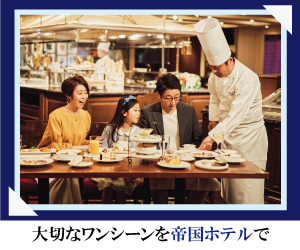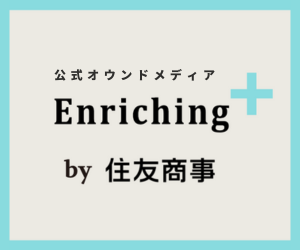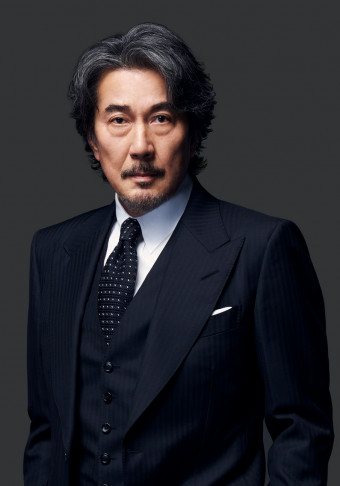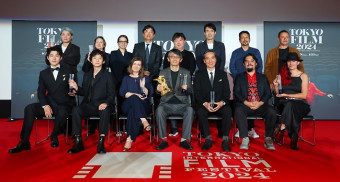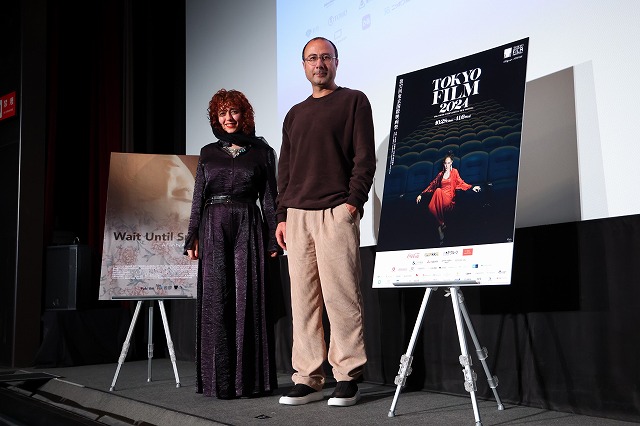
Suicide does not eliminate the pain. It is transferred from one to another.
This observant quote appears at the beginning of Iranian filmmaker Ashkan Ashkani’s Wait Until Spring, and profound pain is exactly what the film explores. Ashkani, a veteran cinematographer who is known for his collaborations with Mohammad Rasoulof, made his own impressive debut with the film’s world premiere at the 37th Tokyo International Film Festival in the Asian Future section. After the screening on November 3, Ashkani appeared at a Q&A session with his star, Sahar Sotoodeh.
Wait Until Spring documents 24 hours in the life of Saman (Sotoodeh) after the discovery of her husband’s suicide. Unable to accept the tragedy, she spends a day as if nothing had happened and attends to the problems of her friends and relatives while hiding her own. While seemingly a quiet film with minimum camera movement, it is tremendously powerful and authentic, unpacking the struggles of women in Iran, especially those who are separated from their partners.
Ashkani was asked about the inspiration for the story, and responded, “This film depicts 24 hours, but it took three years to make. We started the production during Covid. One of the members of a production company committed suicide and I saw the photo of this person on television. It made me wonder about the feelings of those who lost their family members. It all started with this single frame of a photo.”
The lead actress admitted it was challenging to play a character with depth in a production that spanned three years. Said Sotoodeh, “The character lost her loved one. It was so shocking and she cannot accept that. I think it is natural for all humans to take some time to accept something unusual. So she just keeps walking and walking, being confused and not understanding what is happening. As she walks, she probably remembers all the memories she shared with her husband. But she is very confused and cannot concentrate. I had to maintain the continuity of facial expressions for three years. That was very difficult.”
As the central theme of Wait Until Spring is suicide, Ashkani explained how suicide is perceived in his country. “In Iran, when a family member commits suicide, they try to hide it. They do have a funeral and pay some respect to the deceased. There is no anger or rumors from society. But people always hide it.””
“In this film, each character is suffering from loneliness and social pressure and has the idea they might commit suicide. Despite that, they do not choose suicide. They choose life. This is what I wanted to depict.”
Sotoodeh added, “Unfortunately, in this society, we have an increased number of suicides. Because of the increase, we wanted to make this film. When your partner commits suicide, people around you do not look at you favorably. Some people believe that if you were a good partner, your partner would not choose to take their own lives.”
Although Ashkani has served as director of photography on many films, he decided not to shoot his own directorial debut. He explained, “During post-production, I realized that I didn’t give any instructions to the cinematographer of my film. It made me relieved and happy that I could do that without being conscious of it. I really wanted to shoot something simple while depicting the complexity of human feelings.”
Q&A Session: Asian Future
Wait Until Spring
Guests: Ashkan Ashkani (Director/Producer/Screenplay), Sahar Sotoodeh (Actor)
















